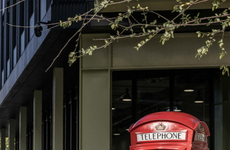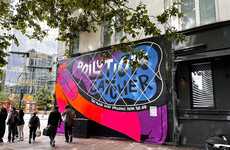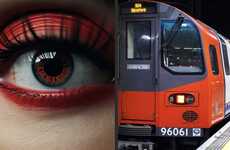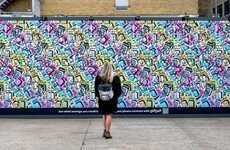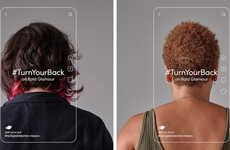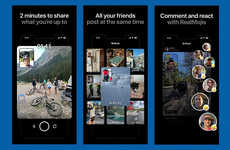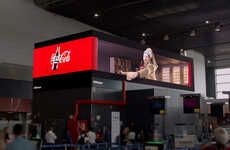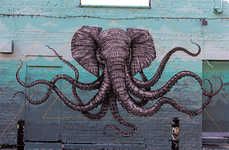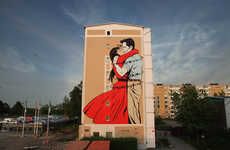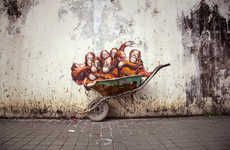
This Street Art Draws Attention to Photo Manipulation
Helen Picard — April 1, 2014 — Art & Design
References: zeutch
A street artist recently used real-life Photoshop in an urban sticker campaign. The artist used stickers of the generic background to peel back advertisements, mailboxes, graffiti, and an official "do not enter" sign in East London.
The stickers act as real-life Photoshop to peel back posters, billboards, and advertisements. The campaign begs the question(s): Do we Photoshop, or are we Photoshopped? In a society constantly bombarded by tons of advertisements tailored to capture our attention at any cost, what is real and what is not? They allow the viewer to zoom out and see their world as a construct, questioning consumer society.
A model's matchless beauty seems suspicious once the sticker forces you to question it, and fried chicken doesn't look as appetizing once you think about how it's made.
The stickers act as real-life Photoshop to peel back posters, billboards, and advertisements. The campaign begs the question(s): Do we Photoshop, or are we Photoshopped? In a society constantly bombarded by tons of advertisements tailored to capture our attention at any cost, what is real and what is not? They allow the viewer to zoom out and see their world as a construct, questioning consumer society.
A model's matchless beauty seems suspicious once the sticker forces you to question it, and fried chicken doesn't look as appetizing once you think about how it's made.
Trend Themes
1. Real-life Photoshop - Using real-life Photoshop stickers to question the authenticity of images and advertisements.
2. Questioning Consumer Society - Using street art to encourage viewers to reflect on the constructed nature of their world and challenge consumerism.
3. Perception Vs Reality - Highlighting the discrepancy between idealized images and the actual reality, prompting critical thinking about beauty and food industry.
Industry Implications
1. Advertising - Opportunity for advertisers to embrace transparency and authenticity in their messaging.
2. Art - Potential for street artists to use their work to provoke conversations about societal norms and expectations.
3. Food - Chance to promote ethical and sustainable practices within the food industry, addressing consumer concerns about food production and visual representation.
3.7
Score
Popularity
Activity
Freshness


